Four Middle Eastern and Muslim Actresses Sound Off on What's Changed in Hollywood—And What Hasn't
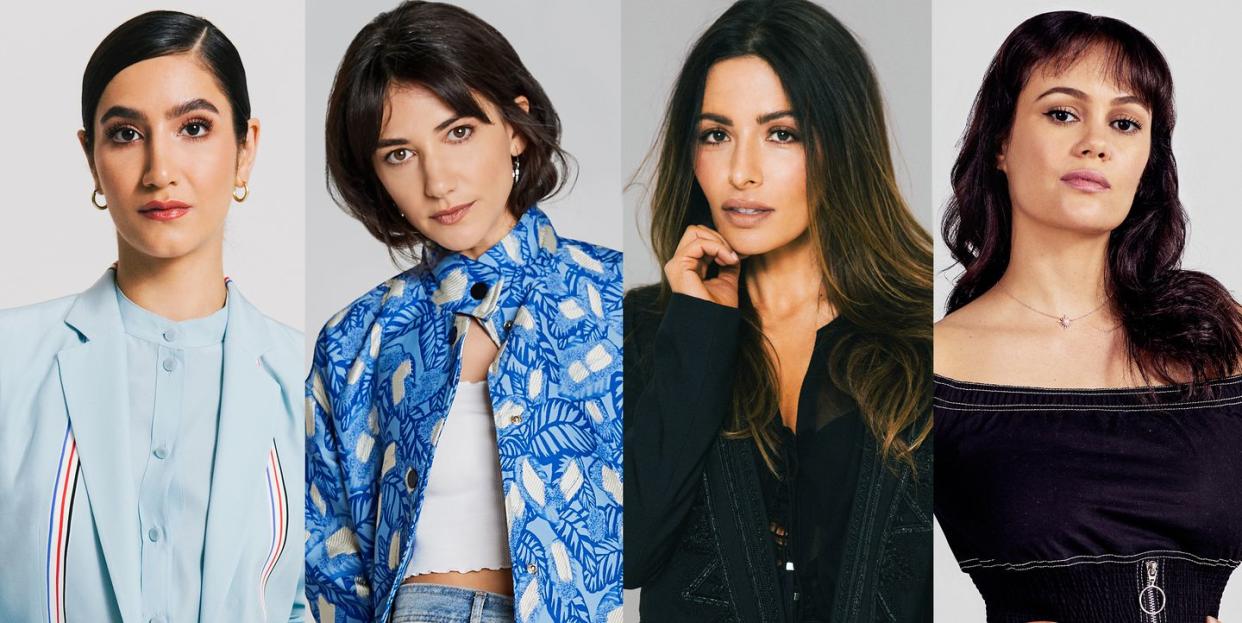
I was recently asked to recall the first time I saw a reflection of myself on TV while growing up, and I don’t think I ever did. There was that shift in elementary school, after 9/11, when Middle Easterners became the villains of so many movies and TV shows, making us the collective face of an abstract terrorist enemy seeking to destroy Western civilization.The Middle Eastern or Muslim women on screen were always invariably from that same homogenous “brown skin” culture: either oppressed victims, violent extremists, or seductive haremesses. The most I had was Princess Jasmine-a cartoon-whose place in a roster of aspirational Disney princesses became my best indication that little brown girls like me belonged here, too. But even Princess Jasmine was an object of the white gaze, eventually reduced to an evil brown man’s servant, her red belly dancer outfit chained to our orientalist amusement.
I founded MuslimGirl.com to advocate for more inclusive media representation, and I often think back to when I first met TV maverick Shonda Rhimes. She described how Grey’s Anatomy correlated with a boom of women of color entering the medical field. How many women, who finally saw themselves on a hit show depicted as smart, nuanced, unstoppable medical professionals, had been inspired to take up a scalpel themselves? And what would happen to all those brown girls like me if they grew up seeing themselves depicted in pop culture as something more than voiceless victims?
Thankfully, a new generation of talented actresses with Middle Eastern and Muslim roots is determined to answer that question. We spoke to four of them: Sarah Shahi, the television sweetheart from The L Word, Person of Interest, and NBC's Reverie; Dina Shihabi, who recently parlayed a breakout role on Amazon’s Jack Ryan into a deal to develop her own show; Nikohl Boosheri, whose role as a proudly LGBTQ Muslim woman on the Freeform hit The Bold Type is a fan favorite; and Sheila Vand, whose diverse resume includes the Persian-language horror movie A Girl Walks Home Alone at Night, this summer's critically acclaimed indie We The Animals, and October's Viper Club alongside Susan Sarandon. They discuss their struggles with typecasting, how they're reclaiming their narrative on set and behind the scenes, and what we're really talking about when we talk about "representation." They share their different array of experiences, and their common goal: to make sure we never look at Middle Eastern and Muslim women the same way again.
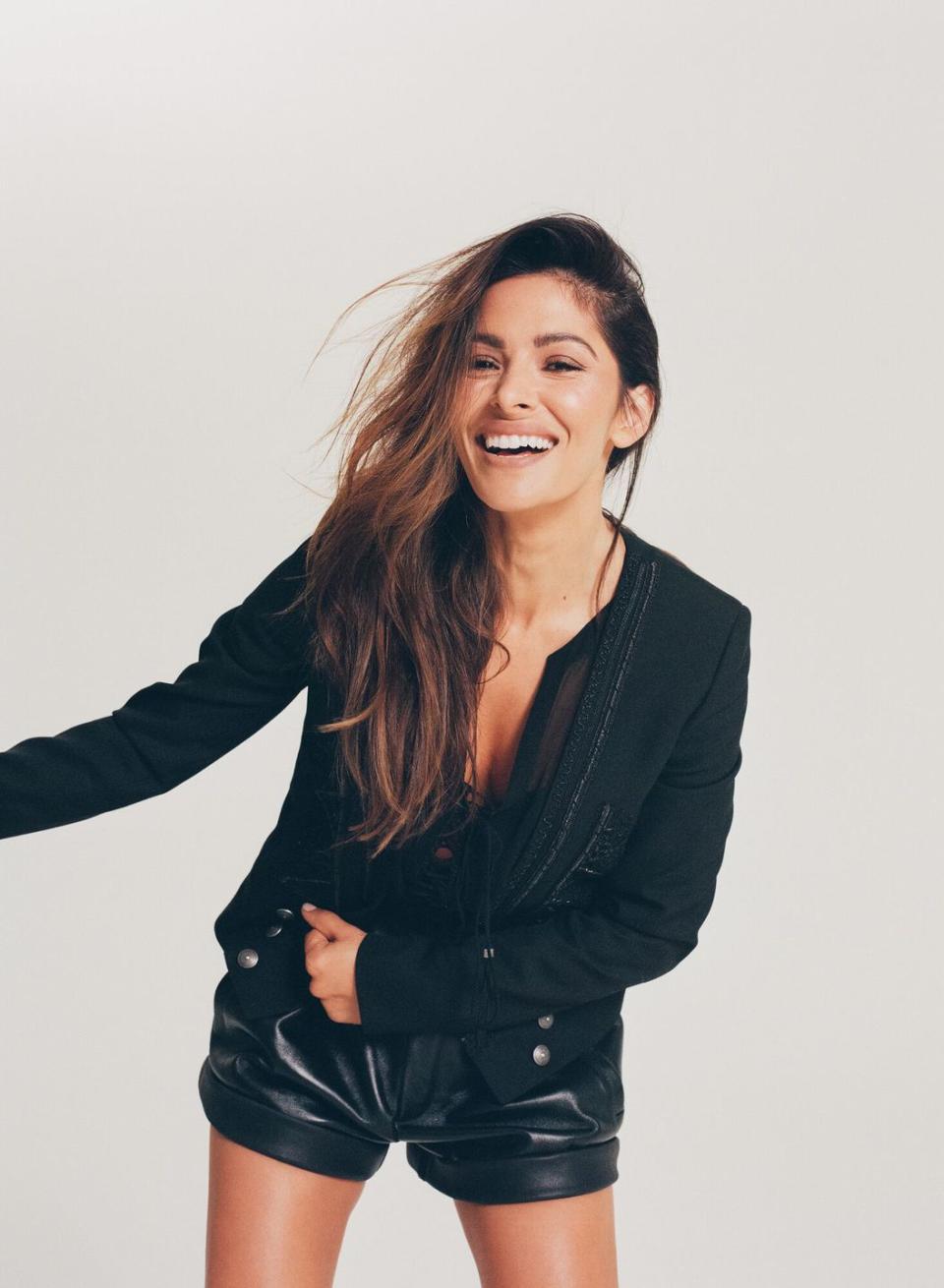
AMANI AL-KHATAHTBEH: I would love to kick off this conversation with not just your projects, but with your backgrounds and who you are when the cameras aren’t rolling.
SARAH SHAHI: My parents are Persian and I was raised in Texas where all I wanted to be was white. I spoke Farsi and English but people always think I'm Mexican, so I got Spanish spoken to me more than other Mexican people that lived in Texas. And all I wanted was to assimilate. I just wanted to blend in. I didn’t want to have a mustache at nine.
DINA SHIHABI: That is so real! [Laughs]
SARAH: It's so real! I felt like nobody understood me. And the fact that my mom had one of the heaviest accents on the planet was a dead giveaway that I wasn't American. So I spent my whole life trying to pretend that I was white, and it wasn't really until I came to L.A. that I started noticing how everybody [in the industry] kind of looked the same, that they were just cookie cutter versions of each other, and I really started to embrace my differences. I also grew up with a single mom. I always say that my mom isn’t a mom; she’s an angel. She’s Superwoman. My dad was a drug addict, he wasn't around. She worked harder than anyone I knew. She came from Iran, she had nothing. After six months she started her own business, learned the language, and she made something of herself. So I often find that kids who are first generation have such perspective about the price their parents paid. You're given so much perspective. She told me: “You work hard, you read, you get yourself super smart, and you believe that there is nothing you can't do. And in the end, you are just as good as any man out there, if not better.” But I didn’t know what I had until I was older and I came out to L.A. and to be a performer. Just like you guys have probably experienced, I've been rejected for white roles for not looking white enough, and by the Middle Eastern roles for not looking Middle Eastern enough.
DINA: It was so nice to listen to you talk, Sarah. Sometimes it’s easy to think that you’re the only one that experiences these things. I was born in Saudi Arabia and raised in Dubai. I moved to New York 10 years ago when I was 18, then I went to drama school and I graduated four years ago. But I grew up watching American TV shows, and when I moved to America, I thought, “I have to sound American, I have to look American in order to like be an actress.” Back then, if you told me that I'd be in a headscarf speaking in Arabic on a TV show, I would have laughed at you. I would have said, “No one wants to see that. Why would that ever happen?” In so many ways, I grew up Muslim and quite religious, and through these roles, I can connect back to that as an actor while also being the person I am now, living in America and feeling like the Western person that I am.
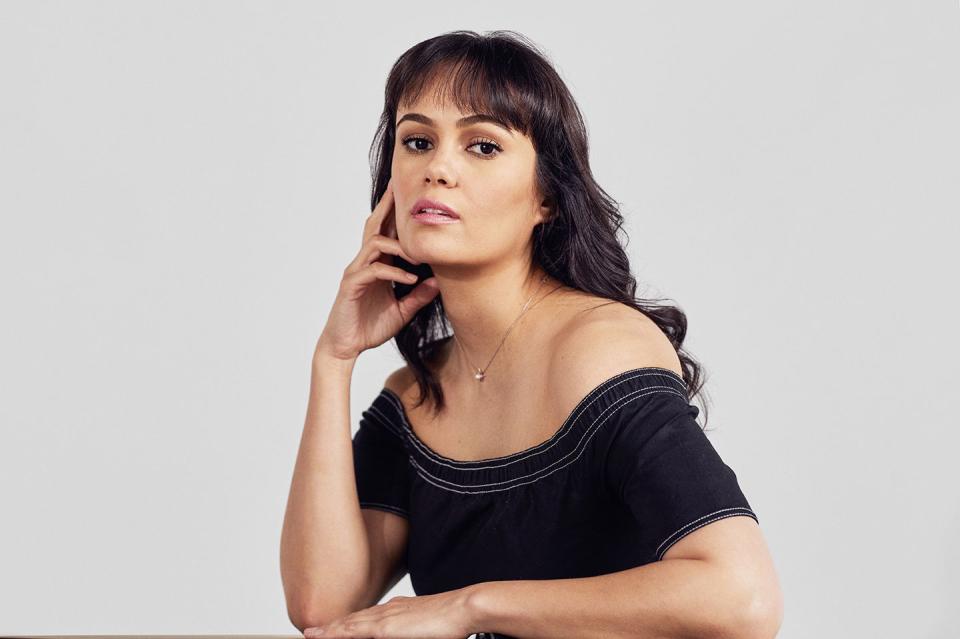
SHEILA VAND: Like Sarah, my parents are both Iranian. I was born and raised in California, so I guess I’m a first generation immigrant, and didn't really think of my Iranian-ness much until I came into the business and other people in the industry saw me that way. So I started seeing myself that way. I also did wanted to differentiate myself from the sea of sameness in Los Angeles, so it's kind of a tricky thing to talk about because in some ways my ethnicity that helped my career and gave me an avenue in such a competitive casting process. I'm in the Snowpiercer TV series [on TNT], which we're shooting and will come out early next year. And the race of that character actually changed after the pilot. It was originally a role named Cleo that didn't have any religion or race. And now her name is Zarah. So far all that’s changed is the name, and so it could go in a super cool direction. But it can be scary too, because I've seen that happen in the past, and sometimes you get stuck with these roles that are obviously reductive because when they want to get diversity points, they'll cast “representation” onscreen. But for me, it's not just about representation onscreen, but also representation offscreen, in the people writing and editing and creating these shows. As frustrated as I can get sometimes, I know there are more opportunities now, and I know that 20 or 30 years ago these roles didn't exist. But I'm just excited for the next phase of change when we're not just equally represented on screen, but also as the people telling these stories. It's not just about being represented, but who are we being represented by? It's not as exciting for me to play a brown role that's written by a bunch of white dudes in a room. I don't see that as an “opportunity,” and sometimes it gets presented to me as an opportunity. I think I'm more excited about playing brown roles created by brown people. As much as I want to trust that everybody wants to be thoughtful and careful and sensitive, the fact of the matter is that a lot of times they’re not. If they want to use our ethnicities to get diversity credit, then they should pull us into the conversation too. If you want to create a part that is authentic…. I'm trying to be frank but diplomatic, and it's really hard for me.
DINA: No, I totally get what you mean. I think that even if the intention is that they're wanting to include us, it's a completely different thing coming from [a writer or director] who’s from where we're from, who shares an experience that is so specific.
SARAH: When you’ve been through the reality of going through some of the things that we've been through, you understand the differences in our perspective, you understand the struggles we may have faced, and you get it.
SHEILA: What I struggle with is when I audition against a whole bunch of white girls who inevitably and inherently have less odds stacked against them, or are able to go out for more roles than I'm able to go out for. And then I get that part and they say, “Oh, well, she's Persian so let's make the part Persian.” First of all, they didn't write a brown role to give a brown actor an opportunity. A brown actress showed up and earned that part up against all of these people who had probably a lot more of a chance of getting it, and then now you want to get the diversity points for the it. Part of my struggle is that I want to be excited about the role, about the opportunity to show a different kind of Persian-American girl on screen, but then the role will be changed to something else, or the character will now be Muslim, and I'm not necessarily part of the conversation about who this girl is, and it just scares me. If there isn’t a Middle Eastern or Muslim girl in the writer's room, then maybe don't write a Muslim role.
SARAH: As an actress, when they change the role on you like that and they don't include you in the conversation, then it's like, This isn't what I auditioned for.
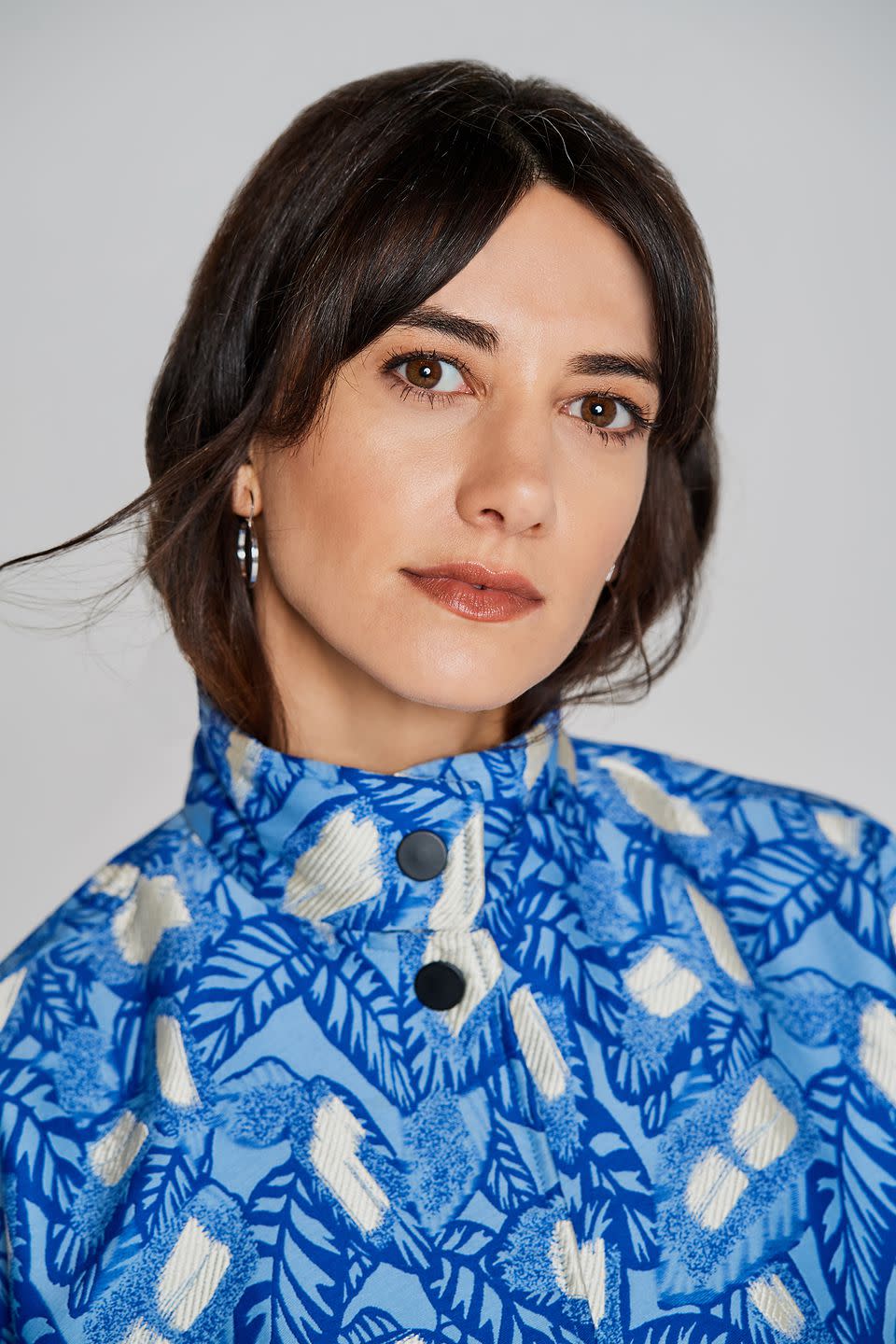
AMANI: They’re literally writing our identities for us.
SHEILA: It's frustrating when you're a minority actor and you want to voice those concerns-let’s say, “Oh, I'm a little nervous. I just don't want the character to become a terrorist.” I don't want to perpetuate any stereotype, especially any anti-brown stereotype, especially in 2018. I've gotten to a point where I’m pretty clear about that. But in general, when I voice my concerns, I get nervous about jeopardizing my job, even now, talking to you at a roundtable where I should feel safe. White actors are not put in that position.
DINA: They don’t have to put their jobs on the line in that way.
SHEILA: They don't have to be put in these positions where they have to ask for more input on their character or be nervous that their ethnicity or religion is going to get exploited. They’re usually represented in the writers’ room by other white people, and also because more often than not, those kinds of issues don't come into play for white roles. How often do you see a white character on TV whose religion is so central to their character? It's not as often as the brown roles. And there's nothing wrong with religion being important to a character, but where are all of the brown people that have no religion? Or who practice other religions?
SARAH: It's a weird feeling because I would also love to be cast in a Persian role or in a project where I actually play my ethnicity, but then instead I get, “Well, you're not Middle Eastern enough.” But what the fuck does that even mean? My full name is Aahoo Jahansouz Shahi, for God’s sake! What do you think a Middle Eastern person look like?
DINA: My brothers are blonde and blue-eyed. We don’t all look alike.
SARAH: It’s like, I'm more Middle Eastern-looking than the fucking Brazilian you hired to play Middle Eastern! [All laugh] You know, we've all had such different paths and different careers. A lot of the characters I've played often presented as the “All-American Girl.” But then what happens is that they’ll eventually want to show the diversity of who they hired. The gimmick is like, “Oh, you speak Farsi, right?” And I say, “Yeah.” And they're say “We can get a dialect coach for you.” And I say, “No, no, I'm fluent. What would you want?” And they'll add a scene where I speak in Farsi. Now, I was never playing a “Middle Eastern character,” the character was just another person, there was no mention of religion or ethnicity, and then all of a sudden, halfway through season four, I'm speaking Farsi, and then it's never really mentioned again. And there are pros and cons to that. What I really liked when that happens-Sheila, this speaks to what you were saying-is that they brought me into the conversation. They didn't just write it for me. Knock on wood, I've worked with showrunners and writers that are open to hearing my feedback. It all comes down to whether you’re able to speak up in those moments where you feel like your truth needs to be captured a little bit more. At the end of the day, what becomes most important is showing the truth of who you are. And in my opinion, if you're working with somebody who wants to fire you over you speaking up about something in the script that made your stomach turn, then go fuck that person. You don't want to be in business with that person anyway. The more and more we get together and we talk about this, the more we’ll embolden one-another. Right now I'm writing a show that's centered around a Persian woman who thinks she's the Persian Reese Witherspoon. And I'm writing it with my sister and her partner, and all the characters are underrepresented in culture. The more we do stuff like that, and the more people of color are up there in leading roles, the more we can show people that all of our stories are the same. It doesn't matter what the color of our skin is.
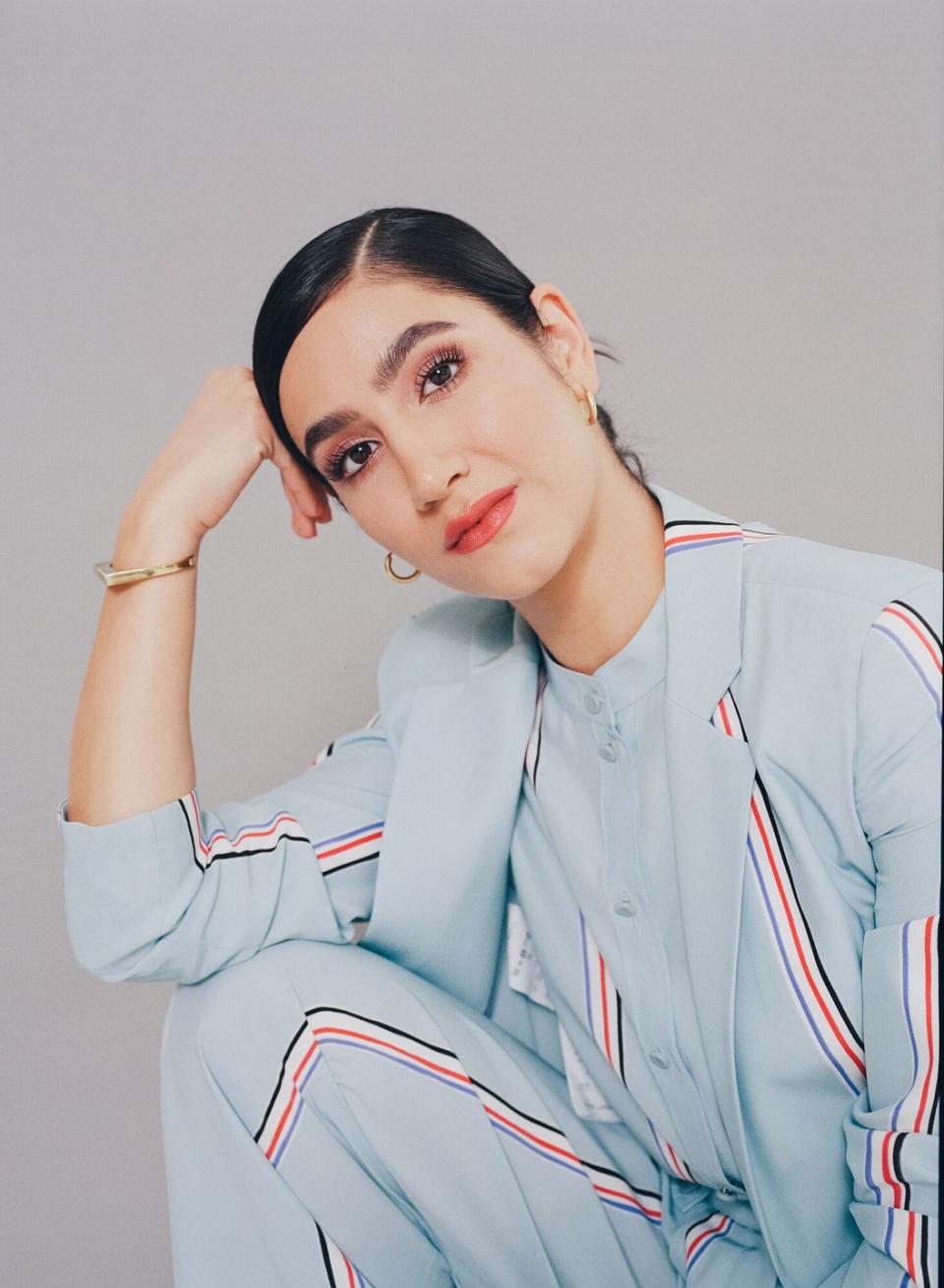
AMINA: I want to pass the mic to Nikohl, who plays a gay Muslim woman, and that story is actually quite unconventional.
NIKOHL BOOSHERI: I’m here! I just loved listening to you guys like a little fly on the wall. I can relate so much to a lot of things that you guys have pointed out. You know, I grew up in Canada, my mother was also a single mom, and I was one of three people of color in my entire primary school. And I always just wanted so hard to blend in. You see what the white kids are eating for lunch and you’re like, “Why can't I have that? Why do I have to bring ghormeh sabzi for lunch?”
SARAH: You mean you didn't like bringing ghormeh sabzi to school and smelling up the entire lunchroom? [All laugh]
AMINA: I feel like that needs a trigger warning. I just had a traumatic flashback. [Laughs]
NIKOHL: I would kill for some ghormeh sabzi now! So what I'm hearing is that we all kind of came into ourselves and discovered ourselves culturally as adults. I didn’t really think about it until I started working in this industry and realized that I started getting cast in Iranian roles. I'm Persian, but I was born in Pakistan because my mom was pregnant with me when she was fleeing the war, and my uncle in the Iranian embassy in Pakistan her that if she came there, he could get her into Canada. So the first film that I did, Circumstance, I had to speak Farsi through the whole thing. I had to do 10 months of dialect coaching because I had such a thick Canadian accent when I spoke Farsi. But I've ended up playing so many of these characters-I can’t remember the last time I spoke without and accent or without a hijab. And there’s something really beautiful because I discovered parts of myself through this work, through meeting people, through shooting in places like Beirut, and reconnecting to my roots in a way. But it’s strange too because for a lot of things that you go out for-not always, but sometimes-a white dude in a room is telling you what your identity is. But as you work more, you have more opportunities to voice how you feel, you start to have a choice, you don't have to take everything that comes your way. I play Adena in The Bold Type, and she is a very confident and unapologetic lesbian Muslim. She was just very fascinating to me when I read the characters because we don’t usually see Muslim women represented this way. She’s very much in the driver’s seat of her own life, she’s not a victim, she’s not under the control of a man. I thought it was a great opportunity to normalize a Muslim presence in cultural spaces. But there have been times in my career where I've had to speak up, as Sheila mentioned, to say, “This doesn’t make sense,” or “I don’t think she would say this” or “This is really offensive!” There are moments where I think there’s no way that I can say [this line] and I have to be okay with the fact that I might get replaced. And that isn't necessarily a challenge that a white actress would face, but we just have that responsibility, unfortunately. When there are so few of these characters, you do have a responsibility to do right by them. When I was starting out, I couldn’t name one Middle Eastern actress, some kind of example that I could follow. So it’s amazing that we’re having this conversation right now in such a public format.
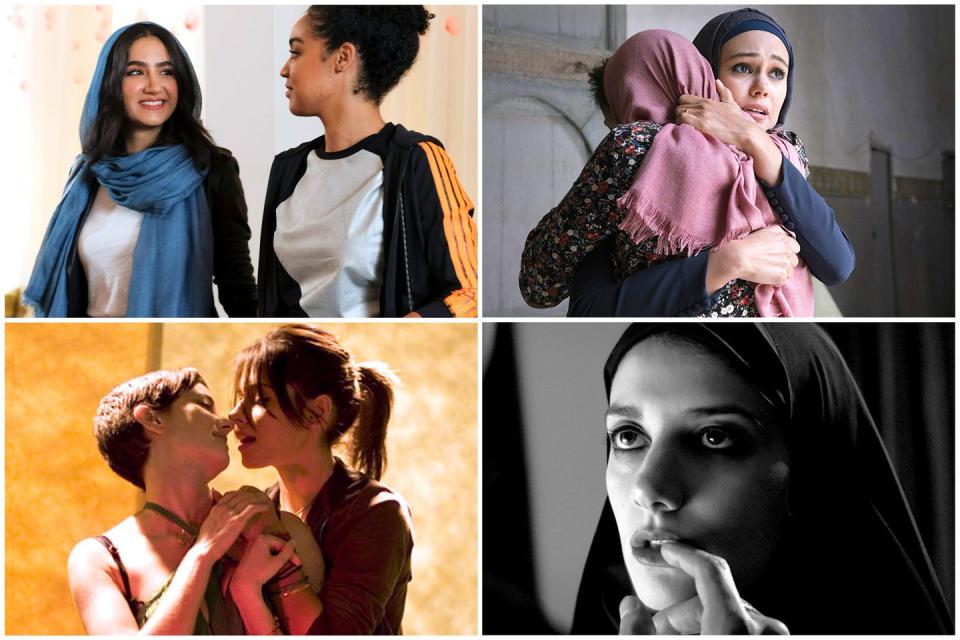
SHEILA: I do feel like the door is more open than ever before. I love playing Persian roles and Middle Eastern roles and having the opportunity to humanize them or elevate them if they’re written by people who may not understand that experience as well as we do. Now I want to channel my energy into writing my own story. Sarah-it’s so cool to hear that you're also writing your own stuff. I'm excited for more of that. But as an actress, I think I've done a good job with being able to vary the types of roles I go out for-and I’ve fought hard for that. I think for me, I just want us to be seen for all the parts that white actresses are seen for too.
DINA: Yes! That’s so important. That experience of getting a role that they then decide to make ethnic. That can be a cool opportunity, but…
SHEILA: The part that I struggle with is that because the industry can be so narrowminded, they're going to look at me in the role and say, “She can only do that” or “She only got that part because that's a Middle Eastern part.” And it's true that we're all brown women, but we're also all very talented. I love and respect and admire all of you. I just think we're all good enough to get some of those next-level parts too.
SARAH: Every woman here is capable of telling stories beyond just one.
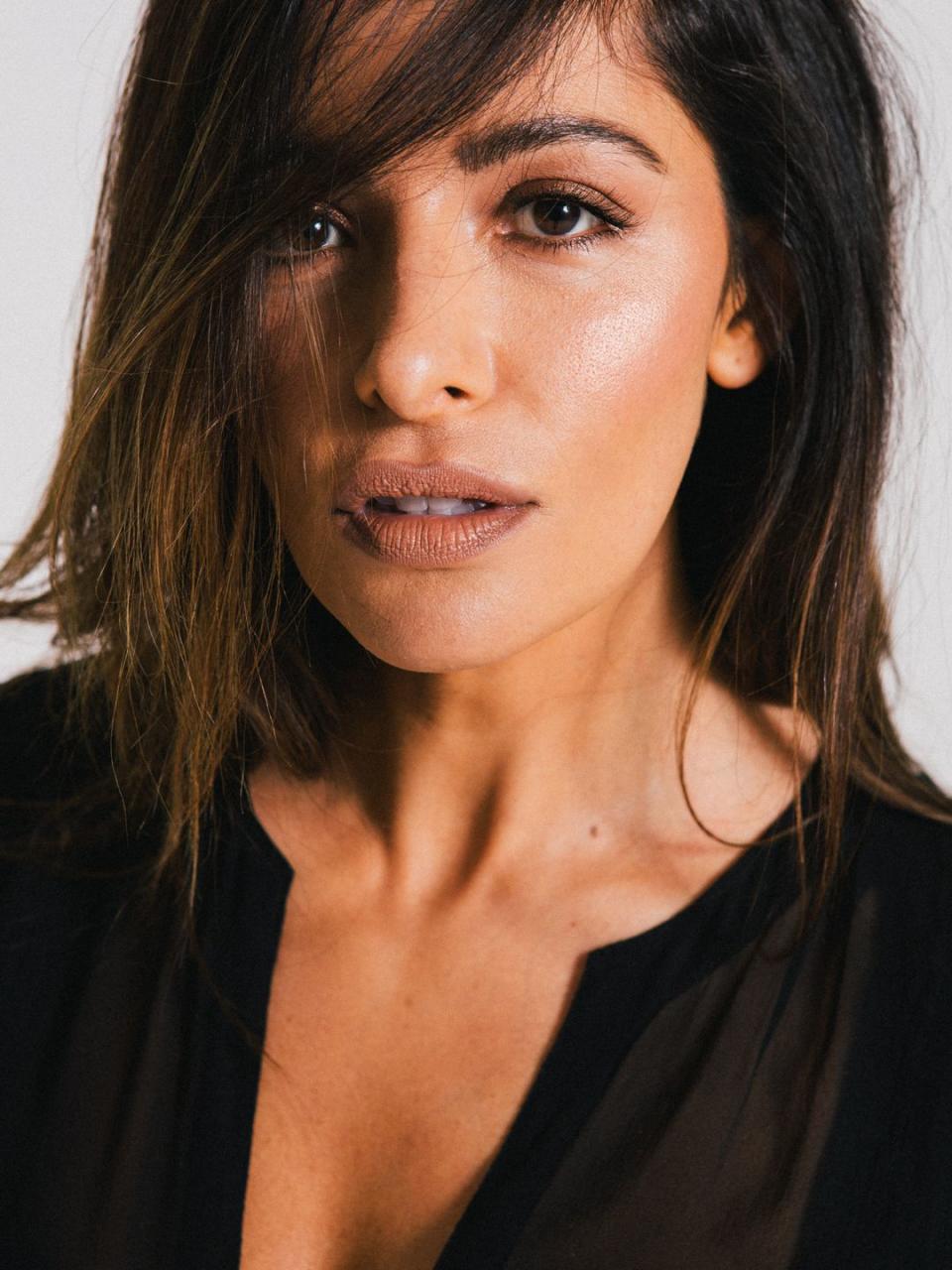
SHEILA: Yeah, I don't want my playing a Middle Eastern role to reduce my chances of getting any other roles.
DINA: When I was growing up in Dubai, when we would go to the movies, there was never anyone in an American movie that had an Arab last name who was just another character who was a part of the story. Can’t we just be a part of the story? If we’re not included in that way, it sends the message that we don’t belong, that we’re not seen, that we’re not wanted-and it’s strange to say this, but that we’re not profitable. I wrote my own script for a show, [Habibti], and I was thinking of you all when I wrote the manifesto for the series. It’s about me and my group of friends, a group of Saudi best friends. When people meet us and we tell them that we’re from Saudi Arabia, they either say “No, you’re not,” or “I’m so sorry,” or “Does your family know you’re here? Have you been kicked out of your community?” They have a narrow idea of what a Saudi woman is supposed to be. How could a Saudi woman look Western, be drinking, be smoking weed, be sexual? They don’t think that’s who we are. That’s why I think it’s important for people to see us onscreen the way we are.
AMANI: We’re basically talking about how the industry forces one singular image of what a brown or Muslim or Middle Eastern person looks like. What are the implications of that for a minority group’s identity or for the communities that are being represented by those characters?
SARAH: I think that it creates and perpetuates a very narrow viewpoint. You're not teaching culture, you're not spreading awareness, you're not giving the future generation an open-minded outlook. You just keep perpetuating an idea of what you think something should be when it is so much more layered than that.
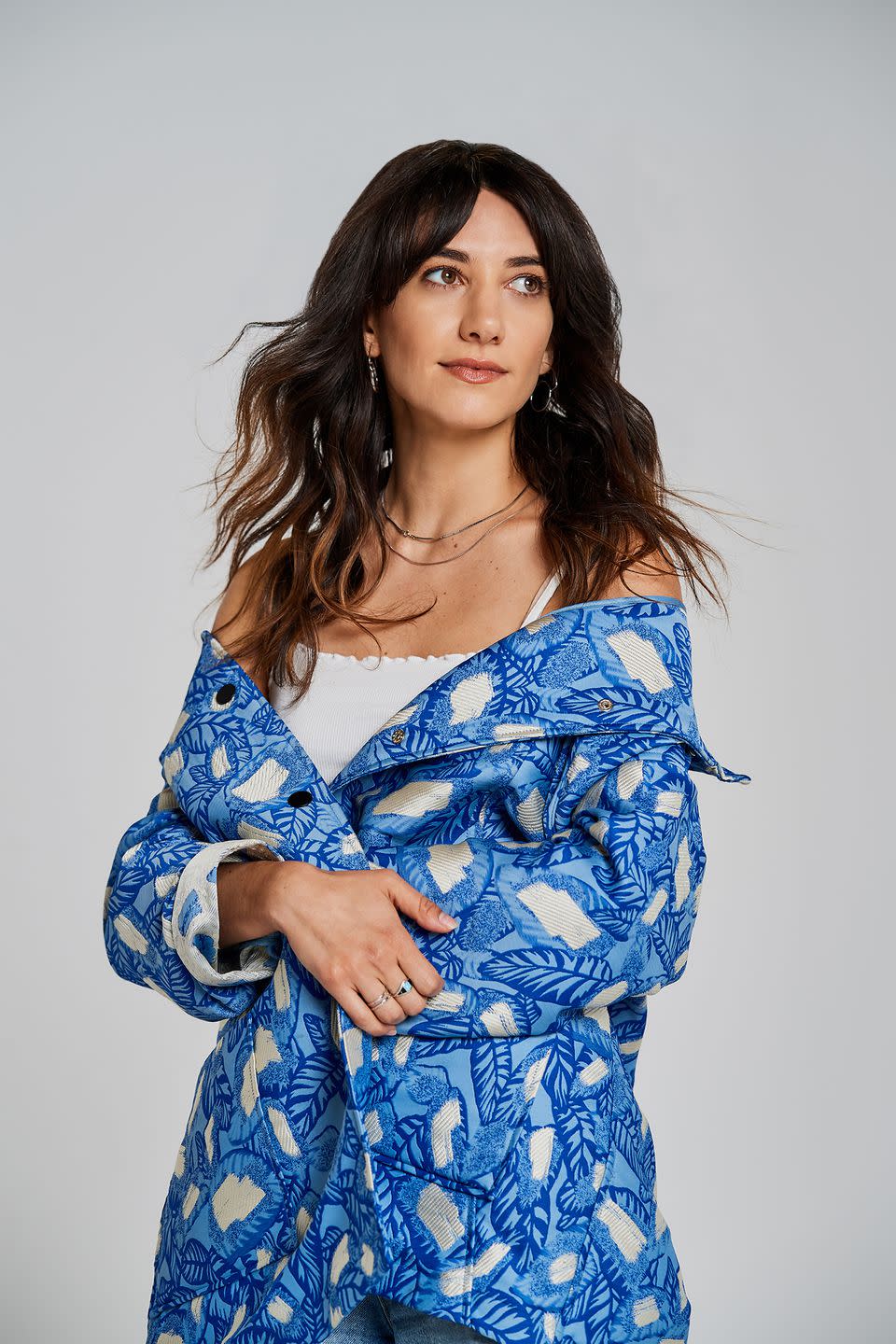
DINA: Television is a huge part of the collective consciousness. If you're growing up overseas and watching TV and all you see is people like you represented with guns, screaming “Allahu Akbar,” then you think, “Oh shit, the rest of the world thinks that’s what we are.” So then you feel this need to prove you're not that thing-don't say your last name, don't grow a beard, don’t present yourself in the way that you think the world expects of you. It's this really self-conscious, scary feeling for people coming from outside America. You feel the need to apologize for yourself. to prove you’re not a bad person.
SARAH: Totally. I hated it. Whenever people asked me what nationality I was, I tried to divert the question somehow. “Oh, look at that bird!” [Laughs]
SHEILA: So it ends with a question of why we’re made to feel that way. There is a reason we grew up feeling that way. And part of it is that we don't celebrate our otherness. Dare I say it’s because of a white patriarchy? You could chalk it up to me being a feminist-please do! Why do they feel like it's a threat to celebrate the things that make us different as well as all the things that ultimately make us the same? I think that we grew up feeling like we were normal Americans or Canadians because that's just how we saw ourselves. It was other people who told us we were different. So I think an important question is why are we made to feel that way. Give the next generation more permission to be themselves.
NIKOHL: Stories have the power to open up your perspective and, ultimately, a sense of understanding between people. So when we only see one version of a minority group, we deny that group the opportunity to feel seen and heard. It perpetuates tired and dangerous stereotypes, and it's just a missed opportunity to connect with others.
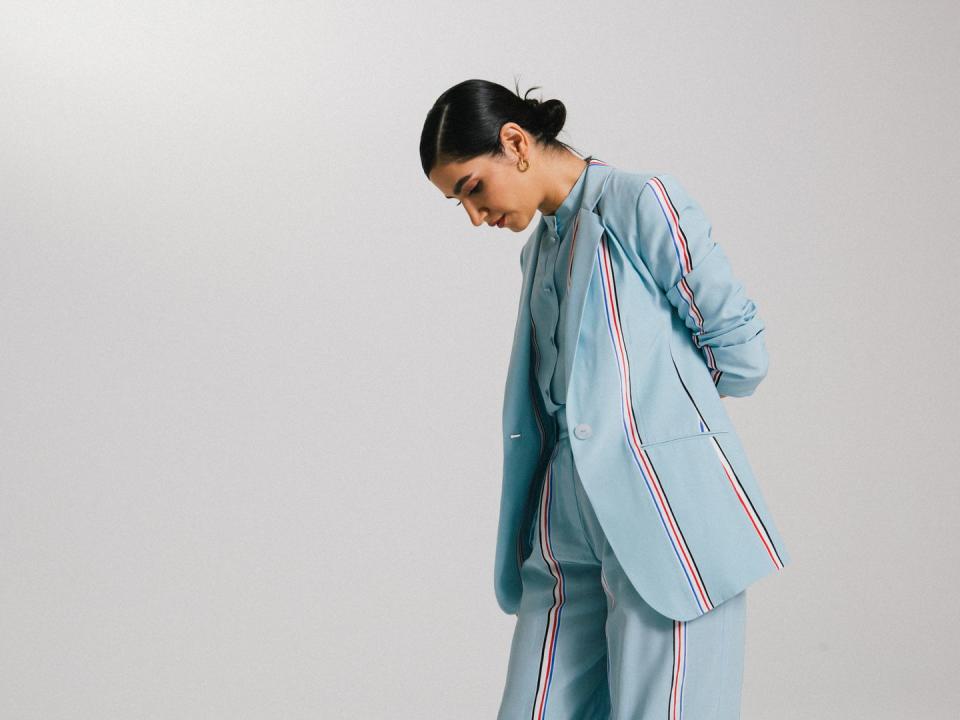
AMANI: Speaking of the next generation, what kind of feedback do you get from viewers and fans?
SARAH: I do have a lot of Middle Eastern girls that come up to me who are just so thankful that they see somebody on screen that they can relate to, that looks like them, that talks about things that they experience in their lives. It fills my heart to hear about how I've been able to make someone feel heard or seen-or to bridge a gap in families, like when I played a gay character on The L Word, and people told me it helped them when they felt misunderstood. Honestly, that's one of the biggest compliments I can get.
SHEILA: I think that's what it's kind of all about-about connecting with other people, about breeding compassion. With A Girl Walks Home Alone at Night, there were a lot of Persian women who felt like it was a different point of view and a different voice that they hadn't heard coming from our part of the world before. That's definitely one of the most rewarding parts of the job because like Nikohl was saying earlier, I didn't really have that growing up. So I'm happy to step into that position.
NIKOHL: I think it speaks to how much of a void and desire there was out there for this kind of representation.
AMANI: So where we do go from here? What are your hopes for the next steps in diverse representation?
SARAH: I just want to have the most authentic truth come out in my work. That's my goal. Fuck the color of my skin. Who cares about my religious beliefs, who cares about where my parents came from or where I was born? This is who I am, this is the flame that burns inside of me as an actor. So how can our work impact everybody else, not just in terms of race and color, but in the representation of who we all truly are? In the end we're never just what we look like. We need to tell casting directors and producers: “A Middle Eastern character can look like me and an American character can look like me.”
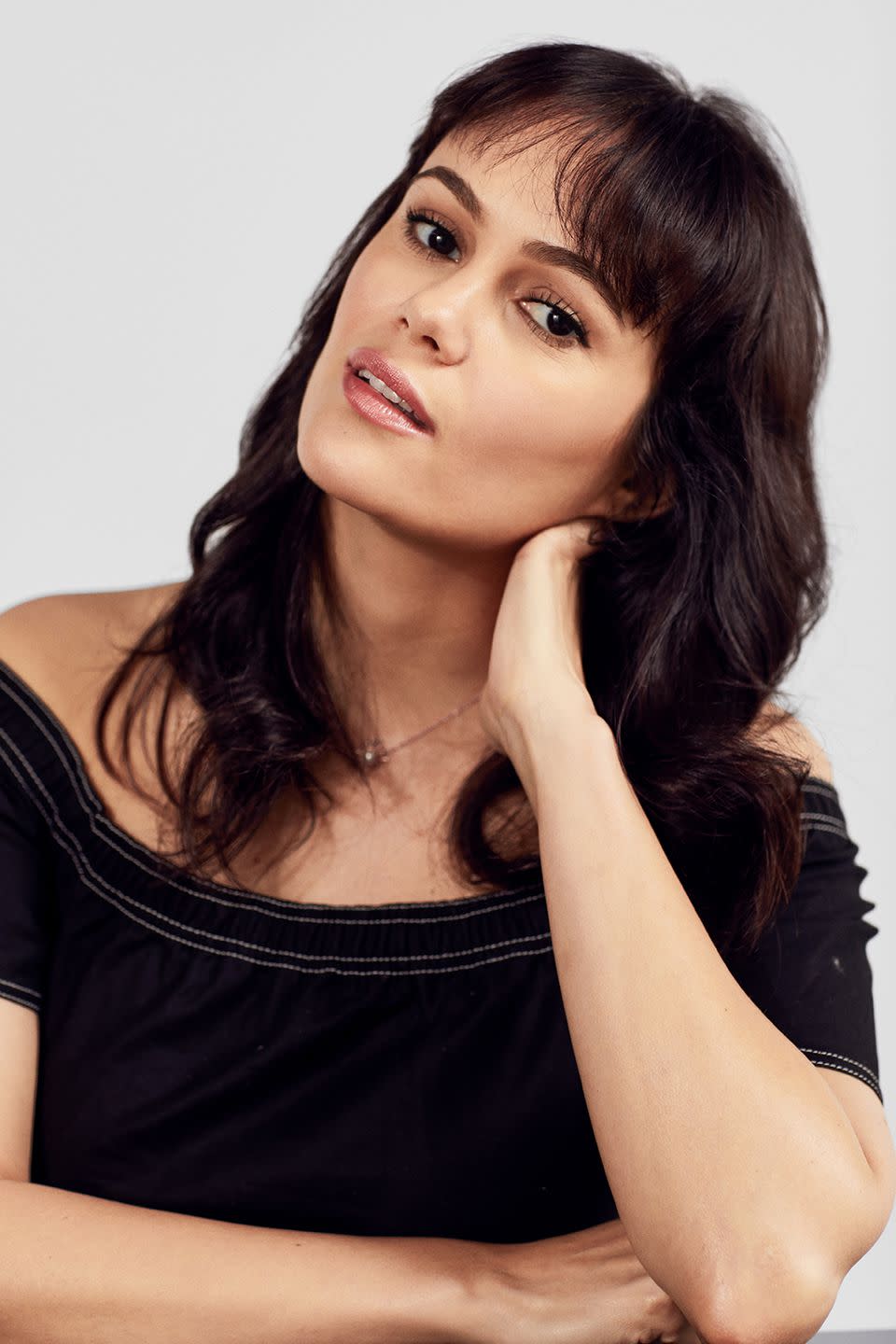
DINA: I have two thoughts that come up immediately: as Sheila was saying earlier, it's important that there are more brown people in the writers’ room and in executive positions making decisions and pushing our stories forward in authentic ways. But I also think it's important that we are given the kinds of next level opportunities of being a part of big movies or working with auteurs and doing things that are not just about where we’re from, but that not just characters who are seen as “Other.” My desire is that the stories we’re telling are more diversified, and that they’re being told in an effective way.
NIKOHL: I hope that the success stories we’ve seen with movies like Crazy Rich Asians and Moonlight inspire more minorities to take their stories into their own hands, and prove to the industry not only that these stories are worth being told, but that they're also profitable. It’s an exciting time, and I hope it doesn’t stop here.
SHEILA: I just think there's a seat at the table for everybody. In the current political climate, I want people to see us all as human, like Sarah was saying. We're not as different as we all think, but the differences we do have actually strengthen us. What if we embrace each other, we embrace our otherness, we embrace other cultures not as threats but as just another part of American culture? I know that what we do is often just entertainment, but I also think that it's important to be sensitive to the context we're living in right now. There's a lot of hate in the world, and at the end of the day, a lot of people are getting their information from the screen. So it's important to be careful that we're not buying into the wrong projects, that we're contributing to a safer space for everybody. We have a responsibility when we're part of moving the cultural needle.
This interview has been edited and condensed for clarity.
('You Might Also Like',)

